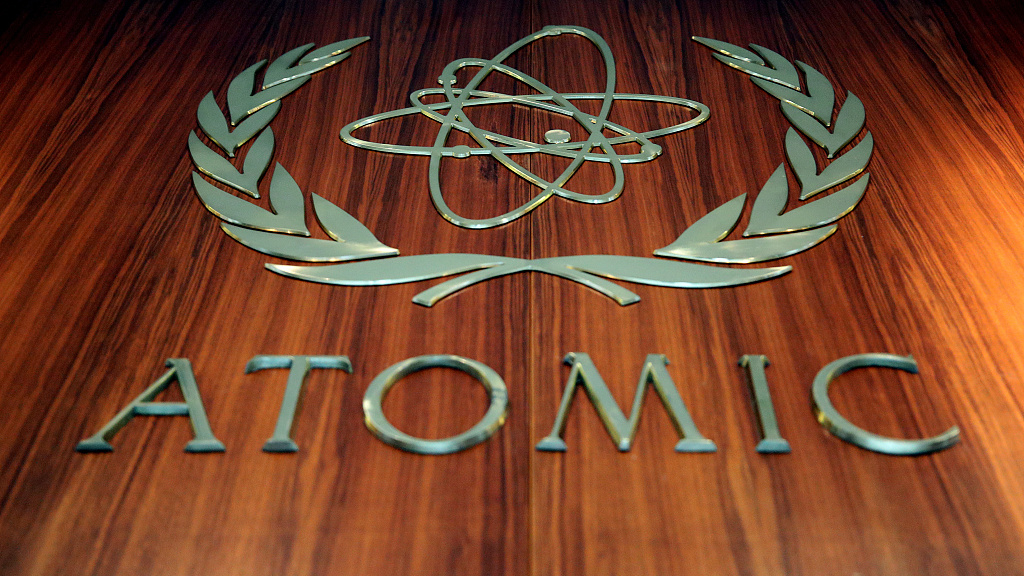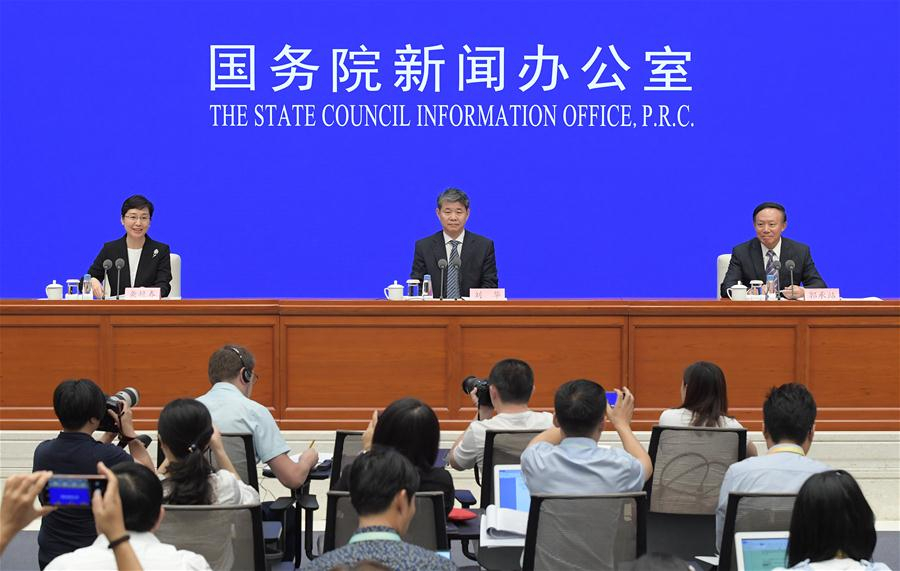

Editor's note: The article was first published by China Plus on September 3, 2019. The article does not necessarily reflect the views of CGTN.
China on Tuesday issued its first white paper on nuclear safety, voicing the country's determination to peacefully utilize nuclear energy, strengthen international cooperation and build a community of shared future for nuclear safety.
Development of nuclear energy was one of the most important technological achievements mankind has made in the 20th century. But many people have negative associations with the word "nuclear" due to the disastrous aftermath of the nuclear bombings in the Second World War and the meltdowns at the Chernobyl nuclear plant of the former Soviet Union and Japan's Fukushima. How to maintain a balance between nuclear safety and development is a major issue of international concern.
As the world's largest developing country, China's development of nuclear energy has played an important role in bridging its energy demand gap and tackling the challenges of climate change. As of June this year, China had 47 nuclear power units in operation, ranking third in the world in terms of the number of units. Eleven new units are under construction in the country. China has made nuclear security a national strategy, placing equal emphasis on development and safety, and it has kept a fairly good safety record in utilizing nuclear energy.
According to Tuesday's white paper, China updates its medium- and long-term development plans for nuclear safety every five years in line with the latest safety standards. It has established a sound system of laws and regulations standardizing the industry, while continuously enhancing its capacity in rapid response and proper action to different types of radiation accidents. Between 2000 and 2016, the International Atomic Energy Agency (IAEA) conducted four comprehensive reviews of China's nuclear and radiation safety regulation and gave full recognition to the country's practices and experiences.

Liu Hua (C) , director of the National Nuclear Safety Administration, Guo Chengzhan (R), deputy director of the administration and Xi Yanchun, spokeswoman for the State Council Information Office, attend a press conference in Beijing, capital of China, September 3, 2019. /Xinhua Photo
As the international political and economic arenas witness profound changes, there are increasing risks of nuclear competition due to enlarged trust deficit among big powers. Countries leading the development of nuclear technologies need to come together to manage such risks.
As a permanent member of the UN Security Council, China has been promoting bilateral and multilateral cooperation to ensure global nuclear security and peaceful utilization of nuclear energy.
President Xi Jinping proposed a rational, coordinated and balanced nuclear safety strategy and advocated an international nuclear safety system characterized by fairness, cooperation, and mutual benefit when he attended the 2014 Nuclear Security Summit in The Hague and the 2016 Nuclear Security Summit in Washington, DC.
The white paper illustrated China's contribution to the building of a community of shared future for nuclear safety. The country is the second largest contributor to the International IAEA Security Fund. It has signed over 50 cooperation agreements on nuclear safety to taken part in the Multinational Design Evaluation Program for nuclear power plants, and help developing countries to train nuclear safety personnel and carry out technical drills.
China has stated it will continue to place equal emphasis on nuclear energy development and safety as nuclear safety has no borders and all countries share the responsibility.
(If you want to contribute and have specific expertise, please contact us at opinions@cgtn.com.)

Copyright © 2018 CGTN. Beijing ICP prepared NO.16065310-3
Copyright © 2018 CGTN. Beijing ICP prepared NO.16065310-3